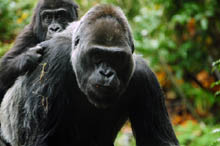Where Is Congo and What
Is It Known For?

The Republic of the Congo, also known as Congo-Brazzaville, Little Congo, or simply Congo, is a state in Central Africa. It is bordered by Gabon, Cameroon, the Central African Republic, the Democratic Republic of the Congo (formerly known as Zaire), the Angolan exclave province of Cabinda, and the Gulf of Guinea.
The earliest inhabitants of the region were Pygmy people, who later were largely displaced and absorbed by Bantu tribes. The inhabitants of the Congo river delta first came into contact with Europeans in the late 15th century with Portuguese expeditions charting the African coastline. The area came under French sovereignty in the 1880s. Upon independence in 1960, the former French region of Middle Congo became the Republic of the Congo. The People's Republic of the Congo was a Marxist-Leninist single-party state from 1970 to 1991. Multiparty elections have been held since 1992, although a democratically elected government was ousted in a 1997 civil war.
Congo is mostly a forest or savanna-covered plateau drained by the Ubangi-Congo river systems. Sand dunes and lagoons line the short Atlantic coast. The climate is hot and tropical. Most Congolese live in the southern third of the country. Half the workforces are farmers, growing food and cash crops including sugar, coffee, cocoa and oil palms. Oil and timber are the mainstays of the economy, and oil generates over fifty percent of export revenues.
|